They’re romantic and nostalgic, both beautiful and functional. And you can find one in the center of almost every town or city’s central square here in Mexico.
Known as a kiosko — or glorieta, mirador, or carpa — in Spanish, the gazebo is a charming focal point, a setting for weddings and concerts, a gathering spot, the heart of parks and gardens – not only here but worldwide.
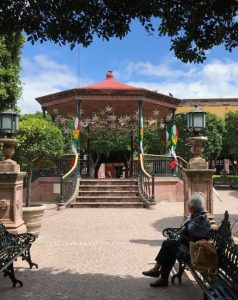
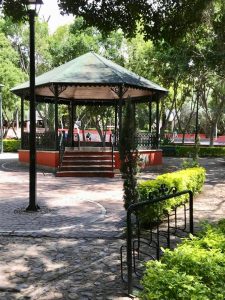
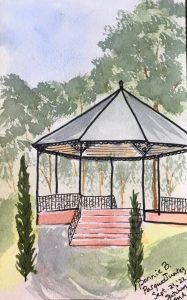
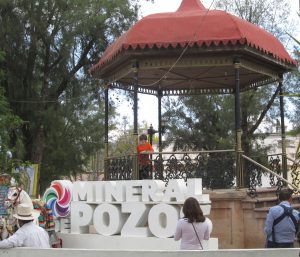
In my research yesterday I learned that the oldest archaeological discoveries of gazebos date back 5,000 years to Ancient Egypt. The Egyptians believed their gardens were earthly paradises, and when they died their gardens and gazebos would follow them on their journey to heaven.
Since that time this style of building – a freestanding outdoor roofed structure with open sides, typically used for relaxation or entertainment – seems to have developed independently everywhere, from Japanese tea houses to Roman summerhouses and ornate Persian gardens.
During the Middle Ages gazebos were popular throughout Europe. But it wasn’t until the 18thcentury that gazebos gained popularity in Europe and became well known in the United States. Today personal and public gazebos, in a wide variety of sizes, styles, and designs, can be found in backyards, gardens, and parks all over the world.
Needless to say, I’m charmed by gazebos. They’ve always evoked for me mental images of 19thcentury French Impressionist paintings of gauzy, languorous, bygone times. But here in San Miguel de Allende, I can admire the gazebos in the Jardin and park whenever I wish; their charm remains timeless.
One of the things I loved most about the apartment here in San Miguel, which I’m moving out of today, is the gazebo I bought (on sale at the Home Depot in nearby Celaya) and placed on my terrace, surrounded by potted flowering plants and palms. I hung several hummingbird feeders from it, too, so my terrace became something of a hummingbird hangout, with dozens of these, my favorite birds, whizzing all around, especially at feeding time. What joy! I called it my paraíso (paradise).
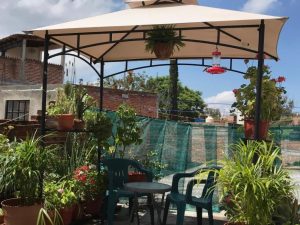
It was particularly wrenching to have to disassemble it all when my duena’s errant husband returned from wherever he’d been for over a year and insisted on reclaiming the space I’ve been renting. Bye, bye paradise!
But life, as we the living learn each day we wake up, goes on. My little gazebo, in countless pieces, is in storage now, along with most of my other belongings. I’ll be staying with a friend for the next several months, while I decide what to do and where to go next. I’m optimistic that my next “home” will have a terrace big enough to accommodate my favorite gazebo in the world.
